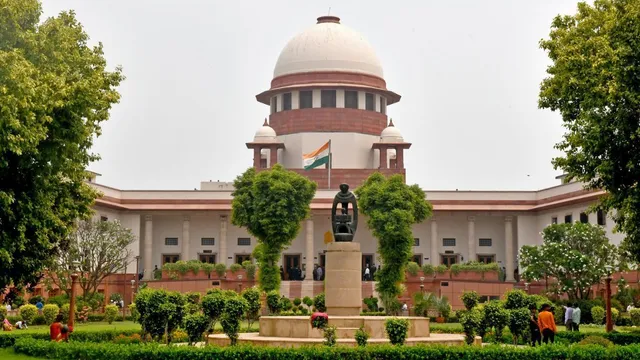- By Imran Zafar
- Thu, 10 Apr 2025 04:36 PM (IST)
- Source:JND
The Supreme Court will hear petitions challenging the constitutional validity of the Waqf (Amendment) Act, 2025, on April 16. A three-judge bench, headed by Chief Justice Sanjiv Khanna and comprising Justices Sanjay Kumar and KV Viswanathan, will preside over the matter, as per the apex court’s website.
A total of 10 petitions have been listed for hearing, including those filed by prominent political leaders and organisations. Among the petitioners are AIMIM MP Asaduddin Owaisi, AAP MLA Amanatullah Khan, RJD leader Manoj Kumar Jha and organisations such as the Association for the Protection of Civil Rights, Jamiat Ulama-i-Hind, Samastha Kerala Jamiathul Ulema and the All India Muslim Personal Law Board (AIMPLB).
The central government filed a caveat on April 8, urging the Supreme Court to hear its side before passing any interim order. A caveat is filed by a party in the high courts or the Supreme Court to ensure that no order is issued without giving the opposing party a chance to be heard.
The Waqf (Amendment) Bill, 2025, was passed by Parliament after intense debates. The Lok Sabha approved it with 288 votes in favour and 232 against, while in the Rajya Sabha, it passed with 128 ayes and 95 nays. President Droupadi Murmu gave her assent on April 5, and the law was notified on April 8.
The petitioners argue that the new law violates Articles 14, 15, 25, and 26 of the Constitution by imposing discriminatory restrictions on the Muslim community’s religious and charitable endowments. Owaisi’s petition claims the amendments erode the protections granted to Waqfs while retaining similar safeguards for Hindu, Sikh and Jain endowments, constituting hostile discrimination against Muslims.
AIMPLB’s plea, filed through advocate Talha Abdul Rahman, states that the amendments are “arbitrary, discriminatory and based on exclusion,” and aim to bring Waqf administration under total government control, sidelining the Muslim minority.
Congress MPs Mohammad Jawed and Imran Pratapgarhi, TMC MP Mahua Moitra, and Azad Samaj Party’s Chandra Shekhar Azad are among others who have approached the court. The DMK, in its petition, said the law disregards objections raised by the Joint Parliamentary Committee and adversely affects nearly 20 crore Muslims nationwide.
Jamiat Ulama-i-Hind termed the Act a “dangerous conspiracy” to undermine religious freedom, while the Samastha Kerala Jamiathul Ulema called it a “blatant intrusion” into religious autonomy. The petitions collectively seek the law's repeal, labelling it unconstitutional.

